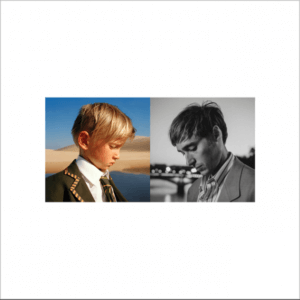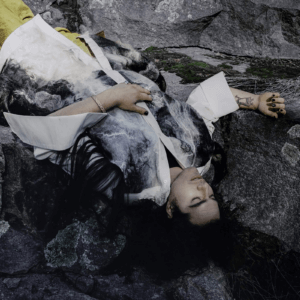
8.0
Island
Owen Pallett
Rock musicians have always been fascinated by orchestras. I suspect it stems from the differences in how the two kinds of organizations operate. Bands are people jockeying for sonic position within a track, like a forward trying to set-up in a goalie’s crease. With orchestras, the music is all written and established, so there’s no fighting. You can see how that idea might appeal to a rocker. Owen Pallett’s Islands is an interesting mix of two worlds: a solo performance with the orchestra so tightly woven into the mellow tracks that they’re almost an extension of Pallett.
Pallett is able to deftly maneuver orchestral elements due to his classical violin training. He’s written scores, worked and played with bands like Arcade Fire and created orchestral arrangements for everyone from Linkin Park to Taylor Swift. Island was a surprise release, an impressive feat given the large scope of the album (how does one keep a cello a secret?). Pallett first wrote the album on acoustic guitar and then translated those songs into orchestral music, recording live with the London Contemporary Orchestra at Abbey Road Studios, the site of some fairly historic band-orchestra interactions. Cough. Beatles.
What’s impressive about Pallett is how he’s able to control the dynamics of the orchestra. Orchestral music in straight-forward pop songs typically either overwhelms the more traditional instruments or is mixed down so low that it’s barely noticeable. It’s tough to balance an army of acoustic string instruments against electric ones that can overpower just about anything with the twirl of a dial. Pallett’s thoughtful arrangements allow him to navigate this challenge, though. “Fire-Mare” begins with a finger-picked guitar as a violin swells in and out of the pattern. Pallett’s
vocal line is pure pop, perhaps even disco. His voice has a flintiness reminiscent of singer- songwriter José González. If you took off the acoustic guitar and popped in some drums, you’d see people start to spill out onto the dance floor. Instead, that folk guitar serves as the band, giving the tune more of a gravitas. The melody is lilting and pretty, but the lyrics are heavier: “And I will burn every place that we entered / And I will burn away this hatred within me.” Strings emerge for brief moments, not rising to a giant, overwhelming crescendo, but instead adding color, texture, and drama, never detracting from the song itself. Interestingly, Island includes another version of the same song that’s slower and piano-based and while it’s very pretty, the pop underpinnings of the other version are missing from the melody. But it’s still fascinating to hear Pallett cover himself within the course of a single album.
Island has a comparable in Perfume Genius’ Set My Heart On Fire Immediately, which uses a classical musical vocabulary to push the boundaries of pop. Here, Pallett is using classical instrumentation not to push boundaries, but rather to express himself within them. Listening to Island, one has the sense that Pallett thinks in terms of scores and strings, not to seem high- brow, nor to score the iconic photograph of a sloppy musician conducting a cabal of tuxedoed/party-dressed professional musicians, but rather because it’s the language in which
he thinks.
review by Steven Ovadia
(@steven_ovadia)
Island by Owen Pallett is now available via Secret City Records
Latest Reviews
Tracks
Related Albums
Related News
Advertisement
Looking for something new to listen to?
Sign up to our all-new newsletter for top-notch reviews, news, videos and playlists.














